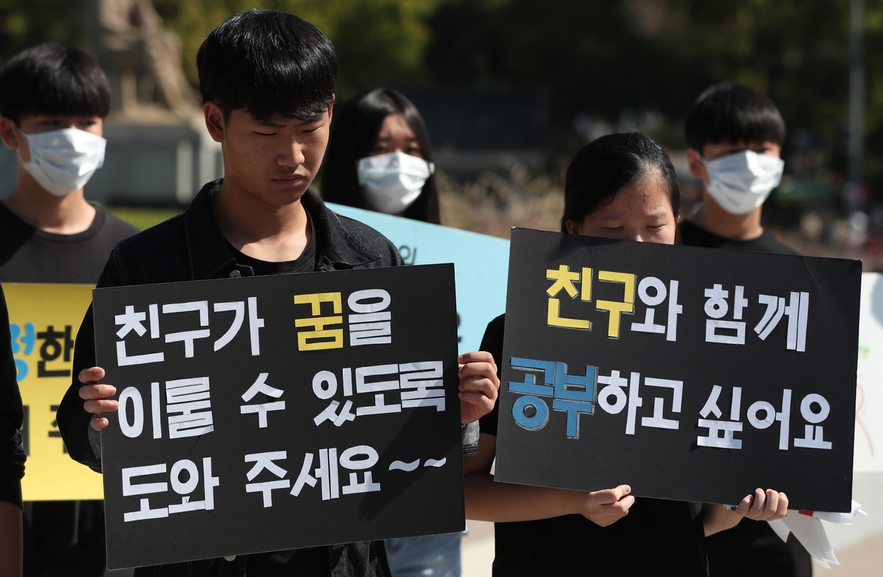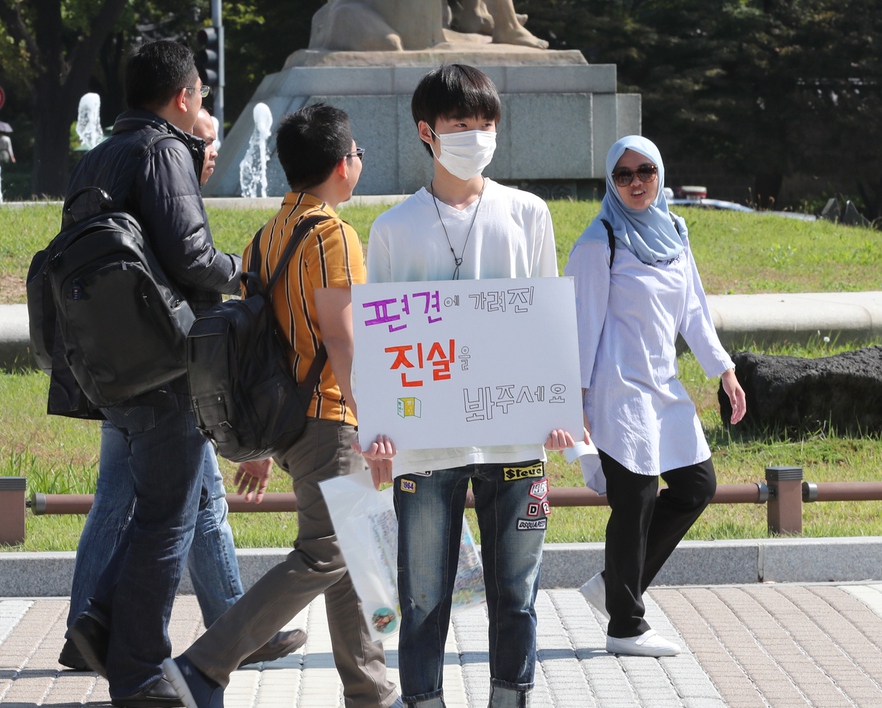 |
|
Students of a middle school in Seoul’s Songpa District hold a relay demonstration for the refugee status of their Iranian-born classmate in front of the Blue House fountain on Oct. 3. (Baek So-ah, staff photographer)
|
Asylum applicant faces possible persecution in home country after converting to Catholicism
“We’re standing here with the hope of welcoming home a family that’s climbing a tall and distant mountain. We hope our friend will come back confidently from his interview [with the Korea Immigration Service].” On the morning of Oct. 3, South Korea’s Foundation Day, 16 middle school students gathered near the fountain in front of the Blue House in downtown Seoul. They were there to take turns in a one-person demonstration asking the government to grant refugee status to “K,” their 15-year-old Iranian friend, who will be interviewed once more on Oct. 5 about his application for refugee status. The students, who attend a middle school in Seoul’s Songpa District with K, held placards bearing messages such as, “We want to study with our friend.” “If our friend goes back to Iran, his life will be in danger. Please protect South Korea’s proud legacy of being the first country in Asia to enact refugee legislation,” the students chanted. K came to South Korea with his father, a businessperson, at the age of seven, and has been living there for nine years now. While in the second grade of elementary school, he converted to Catholicism and then carelessly mentioned the fact in conversation with his aunt, who lives in Iran, making it difficult to return home. A devout Muslim, K’s aunt got extremely angry with him and cut off communication. K is afraid that his aunt may have reported him to Iran’s Ministry of Intelligence and Security. Since Iran is subject to Islamic Sharia law, converting to another religion is regarded as treason. But the Korea Immigration Service hasn’t recognized K and his father as refugees. According to Immigration, K is unlikely to be persecuted because he’s too young (currently 14 years old) to have a definite religious identity and because he hasn’t done anything to attract the attention of the Iranian government. When K and his father filed an administrative lawsuit, a district court granted them refugee status, but this ruling was reversed on appeal and by the Supreme Court. K has protested that the very fact of applying for refugee status would attract attention in Iran and that persecution remains a real possibility.
 |
|
A student holds a one-person demonstration in front of the Blue House fountain calling for his Iranian-born classmate to be granted asylum status on Oct. 3. (Baek So-ah, staff photographer)
|







